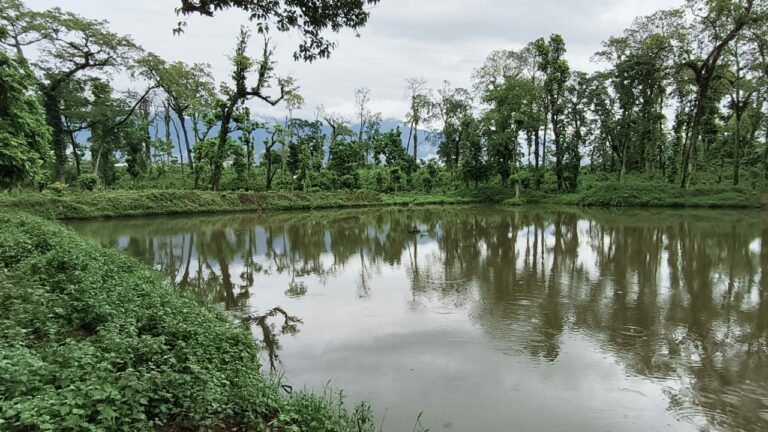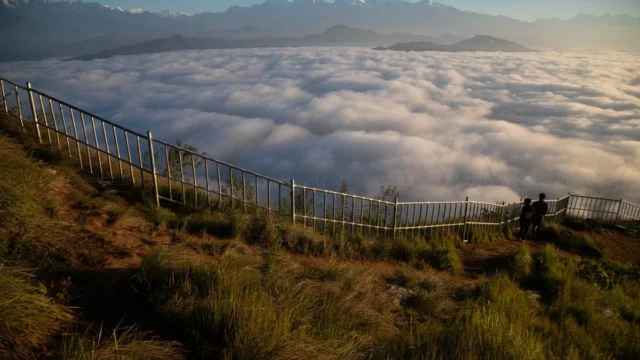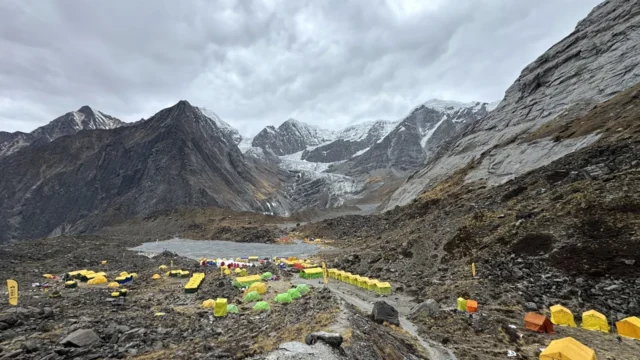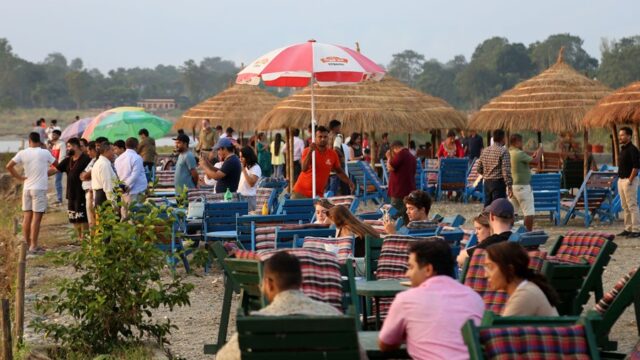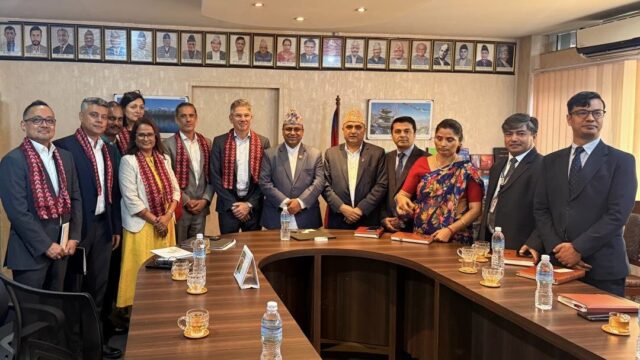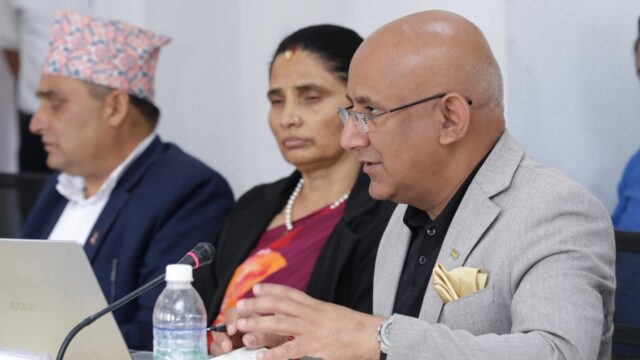As climate change lowers water levels, the residents of Lahan, Siraha, have become proactive in preserving environmental balance. Members of the community forests have also joined in pond conservation efforts to address the issue.
Residents highlight that the construction and preservation of ponds not only replenish groundwater during winter but also attract tourists, contributing to the local economy. In Shobapur, Lahan-15, nestled at the foothills of the Chure range, the “Hattidaha” pond was created two years ago by transforming the wetland area within the Koiralo Khola Model Community Forest. Spanning approximately three hectares, the pond has now become a popular destination for both domestic and international tourists.
The chairperson of Koiralo Khola Model Community Forest, Rudra Narayan Chaudhary, noted that the pond has helped increase water availability in nearby settlements, even during dry seasons. “Before the pond was constructed, wells as deep as 50-60 feet could no longer reach groundwater. Now, after the pond’s creation, water is available at just 30-35 feet,” Chaudhary stated. He added that the pond has brought multiple benefits, including increased water sources, prevention of wildfires, tourism development, and availability of water during dry periods.
To further prevent the water table from dropping in winter, four additional ponds have been constructed within the community forest. These ponds, covering approximately six hectares, have maintained groundwater levels in nearby villages such as Bhediyatol, Mohanpur, Shobapur, and others. Despite widespread water shortages in the northern regions along the East-West Highway due to depleting water levels, locals report a steady supply from their tube wells.
Chaudhary explained that the project received support from the Division Forest Office Lahan, the Udayapur Watershed Management Office, the President Chure Conservation Program, Lahan Municipality, and the federal parliament, alongside other organizations. This collaboration made it possible to develop eco-tourism in the area through pond beautification, electrification, and infrastructure development.
Similarly, Babaji Khola Community Forest in Lahan-15 has constructed two additional ponds with assistance from various organizations. Chairperson Jageshwor Chaudhary highlighted the potential of utilizing the ponds for fish farming and boating, which can help boost local income. Recharge ponds, which collect monsoon water, are essential for replenishing groundwater and preventing springs from drying up.
Experts observe that climate change has severely impacted water sources in Chure and surrounding areas, with many springs drying up annually. Ponds play a crucial role in recharging the soil with water, preventing the complete depletion of water sources. According to them, recharge ponds, which store monsoon water, help retain moisture in the surrounding land and prevent soil erosion.
Several other community forests in the area, with support from local efforts, government bodies, and non-governmental organizations, have undertaken projects to restore ponds and conserve wetland areas. These initiatives aim to mitigate the effects of climate change and ensure sustainable water management for the region.
